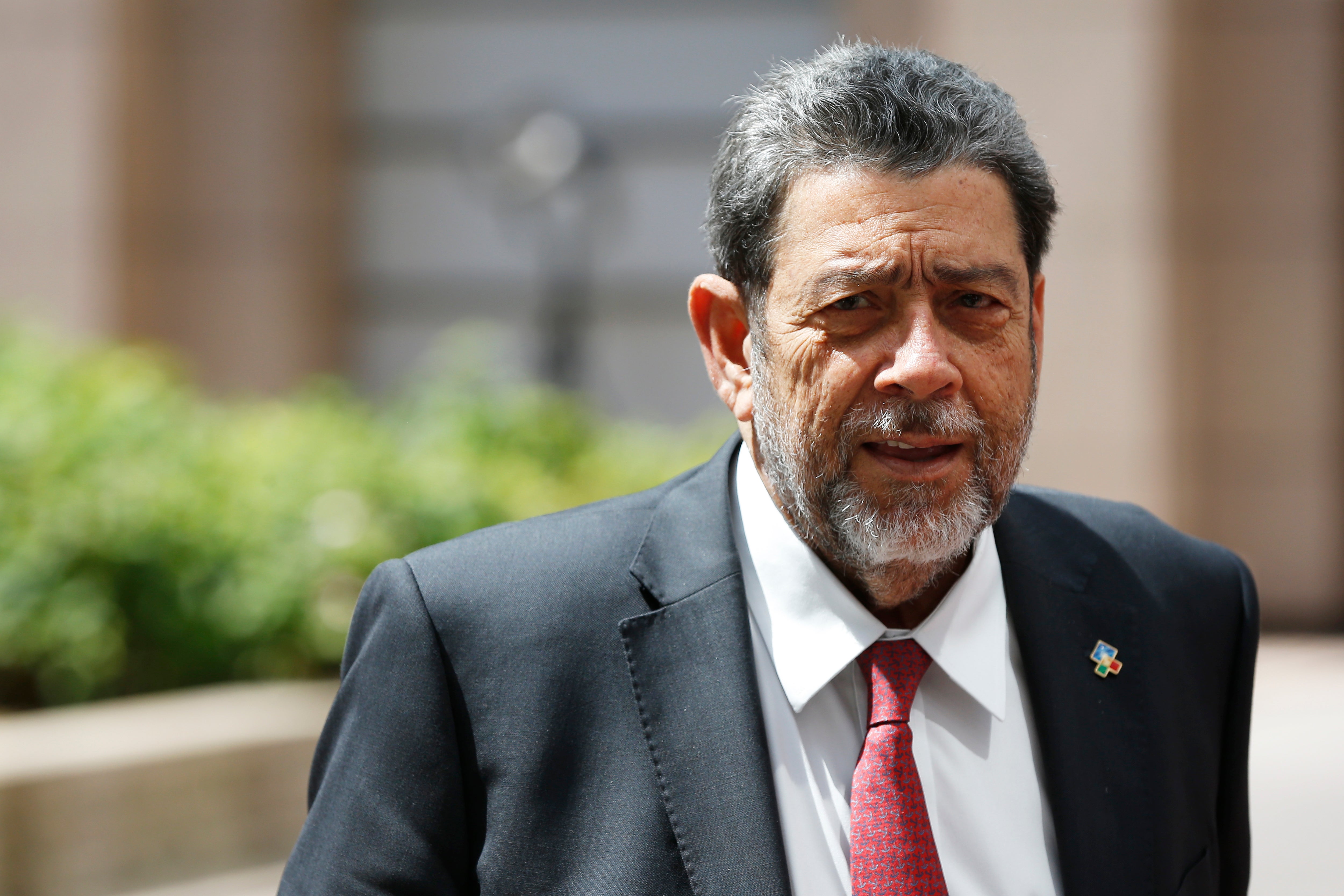St Vincent PM says Caribbean nation needs aid to tackle climate change
Prime Minister Ralph Gonsalves said smaller countries still need financial help from developed nations

Your support helps us to tell the story
From reproductive rights to climate change to Big Tech, The Independent is on the ground when the story is developing. Whether it's investigating the financials of Elon Musk's pro-Trump PAC or producing our latest documentary, 'The A Word', which shines a light on the American women fighting for reproductive rights, we know how important it is to parse out the facts from the messaging.
At such a critical moment in US history, we need reporters on the ground. Your donation allows us to keep sending journalists to speak to both sides of the story.
The Independent is trusted by Americans across the entire political spectrum. And unlike many other quality news outlets, we choose not to lock Americans out of our reporting and analysis with paywalls. We believe quality journalism should be available to everyone, paid for by those who can afford it.
Your support makes all the difference.The Caribbean nation of St Vincent and the Grenadines will not be able to manage the growing impact of climate change without the assistance of multilateral lenders, the prime minister has said in an interview.
Unusually heavy rains added to destruction wrought by a series of volcanic eruptions this year, forcing the relocation of 20,000 of the country’s 110,000 inhabitants, Prime Minister Ralph Gonsalves told Reuters on Thursday.
Shifting weather patterns between 2010 and 2015 caused damage equivalent an entire year’s GDP - close to $800 million (£600 million) - to St. Vincent and the Grenadines, a chain of 32 islands in the eastern Caribbean.
“We have had to repair, rebuild dozens of bridges, hundreds of houses. I mean, it’s a tremendous loss,” said Mr Gonsalves in the capital Kingstown last week, referring to unusual weather patterns in recent years.
“We just can’t cope with climate change unless we get multilateral assistance.”
Eruptions at the La Soufriere volcano in April, which covered buildings and cars with a thick layer of ash, were immediately followed by torrential rains, requiring some residents to be permanently evacuated due to the risk that rivers may shift course.
“Things have been so devastating to the 20,000 persons who had to leave the river to evacuate,” said Mr Gonsalves. “We still have to be providing social safety net support for them.”
The World Bank in April provided $20 million (£15 million) to help the response to the eruptions.
Mr Gonsalves said small countries still need greater financial commitment from developed nations, whose economies have been the world’s principal drivers of carbon dioxide emissions.
At the UN Climate Change Conference in Glasgow last month, rich nations targeted providing $100 billion (£75 billion) annually in climate financing for developing nations, a pledge they have not been able to keep in the past.
“That hundred billion dollars is not enough ... because it is the world’s less developed countries you’re talking about and the amount of the spoilage is phenomenal,” he said.
Reuters



Join our commenting forum
Join thought-provoking conversations, follow other Independent readers and see their replies
Comments